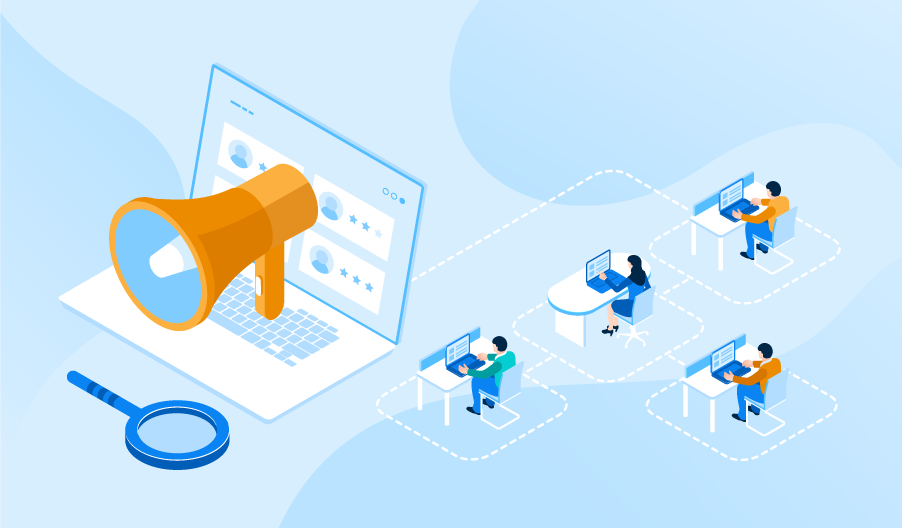
In today’s dynamic business landscape, staffing software has emerged as a pivotal tool in the realm of talent acquisition, reshaping the recruitment process and enhancing organizational efficiency. In this comprehensive analysis, we’ll delve into the intricate world of staffing software, exploring its functionalities, benefits, and the evolving trends shaping the future of talent acquisition.
Understanding Staffing Software: A Deep Dive
Staffing software, also known as applicant tracking systems (ATS) or recruitment software, encompasses a suite of digital tools designed to streamline various aspects of the recruitment process. From candidate sourcing and tracking to seamless onboarding and compliance management, staffing software caters to the diverse needs of HR professionals and recruiters, empowering them to attract and retain top talent effectively.
Key Features and Functionalities
- Efficient Candidate Sourcing and Management:
Staffing software simplifies candidate sourcing from multiple channels, including job boards, social media platforms, and internal databases. It serves as a centralized platform for managing candidate profiles, applications, and communications, streamlining the recruitment process. - Automated Applicant Tracking and Screening:
Through automated workflows and customizable filters, staffing software enables recruiters to track and evaluate candidate applications efficiently. This streamlines the screening process, allowing recruiters to focus on assessing candidates who best match the job requirements. - Seamless Interview Scheduling and Collaboration:
Advanced scheduling features and collaborative tools facilitate smooth coordination among hiring team members. Recruiters can schedule interviews, share feedback, and collaborate on candidate assessments in real-time, enhancing the overall efficiency of the hiring process. - Automated Onboarding and Compliance Management:
Staffing software automates onboarding tasks such as document collection, training assignments, and compliance checks. This ensures a smooth transition for new hires and helps organizations maintain regulatory compliance throughout the recruitment process.
Benefits of Staffing Software Adoption
- Improved Efficiency and Productivity:
By automating repetitive tasks and streamlining workflows, staffing software boosts the efficiency and productivity of HR teams. Recruiters can focus their time and energy on high-value activities such as candidate engagement and strategic decision-making. - Enhanced Candidate Experience:
Staffing software provides a seamless and personalized experience for candidates, from the initial application stage to onboarding. This improves candidate satisfaction and reflects positively on the organization’s employer brand. - Data-Driven Decision Making:
With built-in analytics and reporting capabilities, staffing software empowers organizations to make data-driven hiring decisions. Insights derived from recruitment data help identify trends, optimize recruitment strategies, and measure the effectiveness of hiring initiatives. - Scalability and Adaptability:
Staffing software solutions are scalable and adaptable to the evolving needs of organizations of all sizes. Whether scaling up recruitment efforts during periods of growth or adjusting strategies in response to market changes, staffing software provides the flexibility needed to meet changing demands.
Emerging Trends and Future Outlook
- Integration of Artificial Intelligence (AI) and Machine Learning:
AI-powered features, such as resume parsing and candidate matching algorithms, are becoming increasingly prevalent in staffing software, enhancing efficiency and accuracy in candidate selection. - Remote Work and Virtual Recruitment:
The shift towards remote work has accelerated the adoption of virtual recruitment solutions, enabling organizations to conduct interviews, assessments, and onboarding processes remotely. - Focus on Diversity, Equity, and Inclusion (DEI):
Staffing software is evolving to incorporate features that support diversity, equity, and inclusion initiatives. From bias detection algorithms to inclusive language analysis tools, these features help organizations build diverse and inclusive teams.
In conclusion, staffing software plays a vital role in modern talent acquisition strategies, enabling organizations to streamline recruitment processes, attract top talent, and drive business growth. By embracing innovative staffing software solutions and staying abreast of emerging trends, organizations can gain a competitive advantage in the talent market and position themselves for long-term success.
Staffing Software FAQs
- What is staffing software?
Staffing software is a tool designed to streamline the recruitment and hiring process for staffing agencies and businesses. It helps manage everything from job postings and applicant tracking to onboarding and payroll.
- What are the benefits of using staffing software?
There are many benefits to using staffing software, including:
- Increased efficiency: Automate tasks, reduce paperwork, and improve hiring speed.
- Improved candidate experience: Provide a smooth application process and better communication.
- Better talent pool management: Organize and track candidates more effectively.
- Enhanced decision-making: Gain insights with data and analytics.
- Who can benefit from staffing software?
Staffing software is beneficial for:
- Staffing agencies of all sizes
- Businesses with high recruitment needs
- In-house HR teams looking to improve efficiency
Features and Functionality
- What features does staffing software typically offer?
Common features include:
- Job board integrations: Easily post jobs to multiple platforms.
- Applicant tracking system (ATS): Manage applications, resumes, and candidate profiles.
- Interview scheduling: Schedule and manage interviews efficiently.
- Onboarding tools: Streamline the new hire process.
- Reporting and analytics: Track key metrics and gain insights into your hiring process.
- Does staffing software integrate with other HR systems?
Many staffing software solutions integrate with other HR systems, such as payroll, timekeeping, and performance management software. This allows for a more seamless flow of data between different systems.
- How secure is staffing software?
Security is a top priority for staffing software providers. Look for solutions that offer robust security features to protect sensitive candidate and client data.
Cost and Implementation
- How much does staffing software cost?
Staffing software pricing varies depending on the features offered, the number of users, and the size of your organization. Most vendors offer subscription-based pricing models.
- Is staffing software easy to implement?
Most staffing software solutions are designed to be user-friendly and easy to implement. Many vendors offer training and support to help you get started.
- What should I consider when choosing staffing software?
Here are some factors to consider:
- Your specific needs and requirements
- Budget
- Scalability
- Ease of use
- Security features
- Vendor reputation and support
Additional Questions
- Does staffing software help with temporary staffing needs?
Yes, staffing software can be used to manage temporary staffing needs. Look for features such as timesheet management and payroll integrations.
- Can staffing software help me find better candidates?
Staffing software can help you improve your candidate pool by providing tools to source candidates more effectively and manage applications efficiently.
- What about mobile functionality?
Many staffing software solutions offer mobile apps that allow you to access your data and manage tasks on the go.






